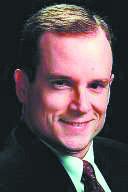The play’s not the thing
Published 12:00 am Thursday, May 8, 2014
RALEIGH — Puzzled by the past several months of histrionics about North Carolina’s election-law changes? You’re hardly alone. By any objective standard, the Voter Identification and Verification Act enacted last year was commonsensical in structure and modest in potential effects.
Most North Carolinians believe that requiring voter identification at the polls is a reasonable, low-cost precaution against a low-probability, high-cost event: voter fraud determining the outcome of an election. Most North Carolinians also favor early voting as a convenience but aren’t wedded to any particular calendar of voting hours and days. Most North Carolinians don’t want government funding political campaigns, either.
Most North Carolinians probably haven’t read the political science literature, which shows that voter ID laws and early voting don’t have much of an effect on voter turnout, anyway. But I suspect they have the good sense to know that North Carolina, even after the 2013 legislation, is still a relatively easy place to vote. It’s no New York, for example, a deep-blue state where the opportunities to vote are far more restricted.
To equate these changes with “voter suppression,” in other words, is not to make an argument likely to convince swing voters, much less open-minded Republicans, to turn against the Voter Identification and Verification Act. That was never the goal. Vocal opposition to VIVA isn’t ideological or philosophical. It’s theatrical. Its goal is to convince the Democratic base that Republicans are out to get them, so that the Democratic base will turn out to vote in the 2014 midterms.
I have no idea whether the political thespians in question will accomplish the goal. We won’t know until November. So far, however, I think it’s fair to say that the play isn’t going well.
The first plot hole came a few weeks ago when the story broke that hundreds of votes may have been cast in North Carolina by people who shared the same name, birth date, and last four digits of their Social Security number with people who voted in other states during the same election cycle. Tens of thousands more shared the same name and birth date. Although it is entirely possible that many of these cases are coincidences, the possibility that many cases were, in fact, fraudulent votes got a great deal of attention.
The second plot hole came a few days ago when the Associated Press reported that the number of early votes cast in 2014 had exceeded the number of early votes cast during the last midterm primary in 2010 — even though the early-voting period had been shortened from 17 days to 10 days — and that overall primary turnout in 2014 was higher than in 2010, the previous midterm election.
The shorter period was supposed to be an elaborate conspiracy by Republicans to destroy early voting, a convenience which Democrats use in disproportionate amounts. But VIVA didn’t just shorten the period. It also required that counties approve additional polling times and locations to offer approximately the same opportunity to vote early as before.
Gov. Pat McCrory was widely ridiculed by the usual ridiculous suspects for describing the result as a “compacted” calendar for early voting, but that’s precisely what the policy did. Even the state’s decision to approve waivers from the requirement for some counties didn’t amount to much, as these were reasonable requests in locations where early voting had never been prevalent to start with.
Statewide, the number of hours of early voting for the 2014 primary appears to have been about 99 percent of what it was during the previous primary.
This was voter suppression? This was an injustice deserving of statewide fulmination and national news coverage?
No. It was like building up to a climactic swordfight in Act Two and then having one of your leads stumble, drop his prop, and win unwelcome giggles from an unimpressed audience. I’d say these folks need a competent director and more creative staging. But the truth is that the script just isn’t very good.
Hood is president of the John Locke Foundation.


